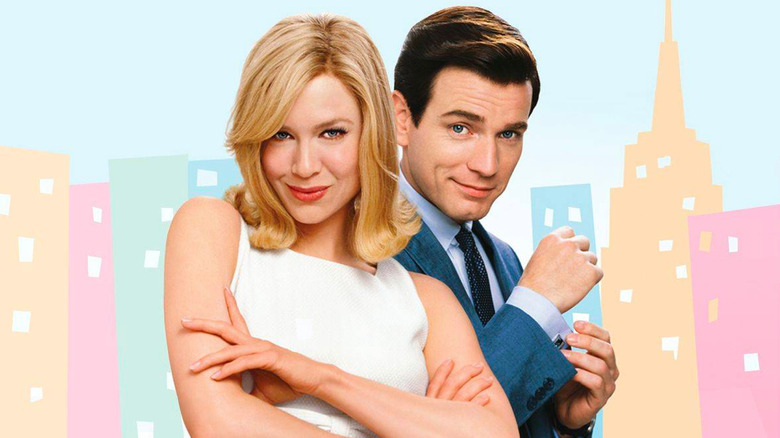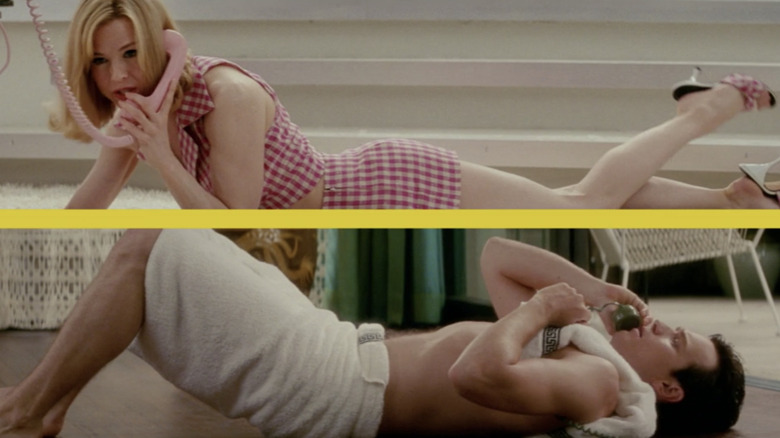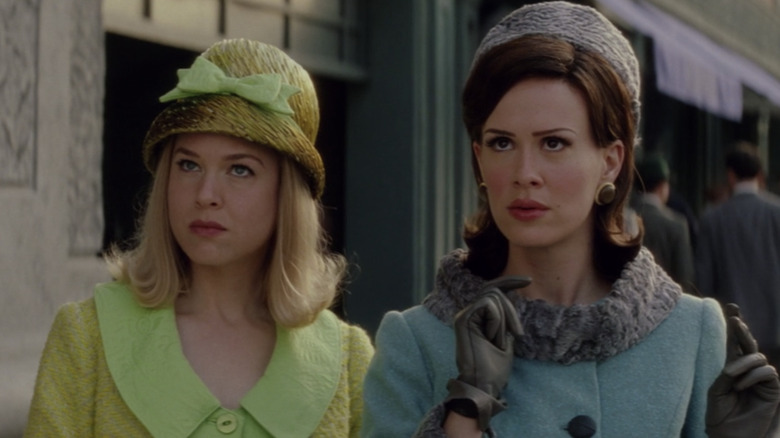The Daily Stream: Down With Love Expertly Revives A Genre We Never See Nowadays
(Welcome to The Daily Stream, an ongoing series in which the /Film team shares what they've been watching, why it's worth checking out, and where you can stream it.)
The Movie: "Down with Love"
Where You Can Stream It: HBO Max
The Pitch: It's the early 1960s, and society's relationships with gender and sex are on the brink of a massive overhaul. Barbara Novak (Renée Zellweger) is an author looking to push for that change, writing a book about how women should forego searching for love and empower them to live just as any man would (which of course includes going out to enjoy meaningless, commitment-free sex). The book becomes a sensation, much to the chagrin of just about every man in the world. Most affected is Catcher Block (Ewan McGregor), a journalist and Lothario looking to score by any means necessary. In order to write a massive exposé on Barbara to torpedo the book's reputation, he assumes the identity of a hapless astronaut and concocts a scheme to get her to fall in love with him. Of course, a plan in a movie never goes accordingly.
Why it's essential viewing
We live in a world of homage. The thing is ... the scope of what cinema tends to homage is pretty narrow. The last few years have thoroughly pillaged the New Hollywood films of the late 1960s and 1970s, as well as a whole host of exploitation fare and the Amblin-tinged adventure films of the 1980s. A lot of these movies that filmmakers are looking back to are some of the greatest films ever made, so it makes sense why they would want to evoke them. Taken on the whole, however, the narrow lens with which we view the history of film can feel repetitive. So many genres and aesthetics are just sitting there, waiting to be revived, lampooned, or simply acknowledged.
Director Peyton Reed presents "Down with Love" in the style of the Hollywood sex comedies of the 1950s and early 1960s. This was an era where the Hays Production Code was still in effect, though in its latter days, and filmmakers were trying to find every which way to make films about sex that danced around the topic without directly addressing it. These are films like the Lauren Bacall, Marilyn Monroe, and Betty Grable starring comedy "How to Marry a Millionaire" or, most famously, the romantic comedies starring Doris Day and Rock Hudon like "Lover Come Back" or "Pillow Talk." They were high-budgeted, brightly colored (usually shot in CinemaScope) pictures that were naughty without being explicit and witty without being crass. While never the most respected films, they were always affable and consistently made money at the box office.
"Down with Love" apes the tone and look of these films perfectly. From the color blocking of people's apartments to the split screens and use of matte paintings, every detail required is in place. Renée Zellweger and Ewan McGregor are completely dialed in to the exaggerated, presentational performance style, while also having tremendous chemistry together to boot. They are flanked by the fabulous Sarah Paulson and David Hyde Pierce as their best friends and confidants and reach the heights of any best friend archetypes you would find in any romantic comedy, expertly delivering gag after gag. While the film initially has a little fun poking at the tropes of these kinds of movies in the opening minutes, the real magic comes from it just settling into sincerely being another entry in the genre. They talk about sex far more openly than in the films it is indebted to, but the franker talk never feels incongruous to what is on screen. If anything, it feels like a natural evolution.
Remember when studios gave comedies money?
"Down with Love" sported a decently sized $35 million price tag back in 2003 (roughly $49 million today), and every cent of that money is up on the screen. You have to invest as much as you can in the sets, the costumes, the props, the hair, the makeup, and everything else in order to sell this particular homage. The films "Down with Love" was looking to were not cheap movies for their time either. Frankly, this film should have even had a bigger budget than what it already had to make the filmmakers' lives just a little easier. In 2003, 20th Century Fox was willing to take the chance on what would be a fairly niche film. They had two big stars of the moment in Zellweger and McGregor and a director coming off the big teen comedy hit "Bring It On," and they had the cachet to take this swing.
Studio comedies sadly are a dying breed. If they do not also feature a large amount of action, studios are just not putting the same resources into funny pictures as they used to. Even the days of them throwing a few dollars at some big-name comedians to stand around and hope they improvise something funny are dwindling. Think back to the last time you actually sat in a theater to watch a pure comedy over the last, say, five years. Not some spectacle with a few jokes. I mean a straight-up comedy. How many is that? Did you need to use two hands to count, because I doubt it?
The idea that "Down with Love" was made at all back in 2003 seems extremely lucky, and today, it would be unthinkable. This was already an uproariously fun film, but time has only shown what a rare bird it had been the whole time. Even within the landscape of studio comedies, "Down with Love" stands apart, as no other movie has really tried to even attempt, let alone accomplish, what it sets out to do. It went criminally under-seen back when it was released in theaters and deserves a truly sterling reputation. We need to cherish movies like "Down with Love," because we don't know if we will get another one like it ever again.


